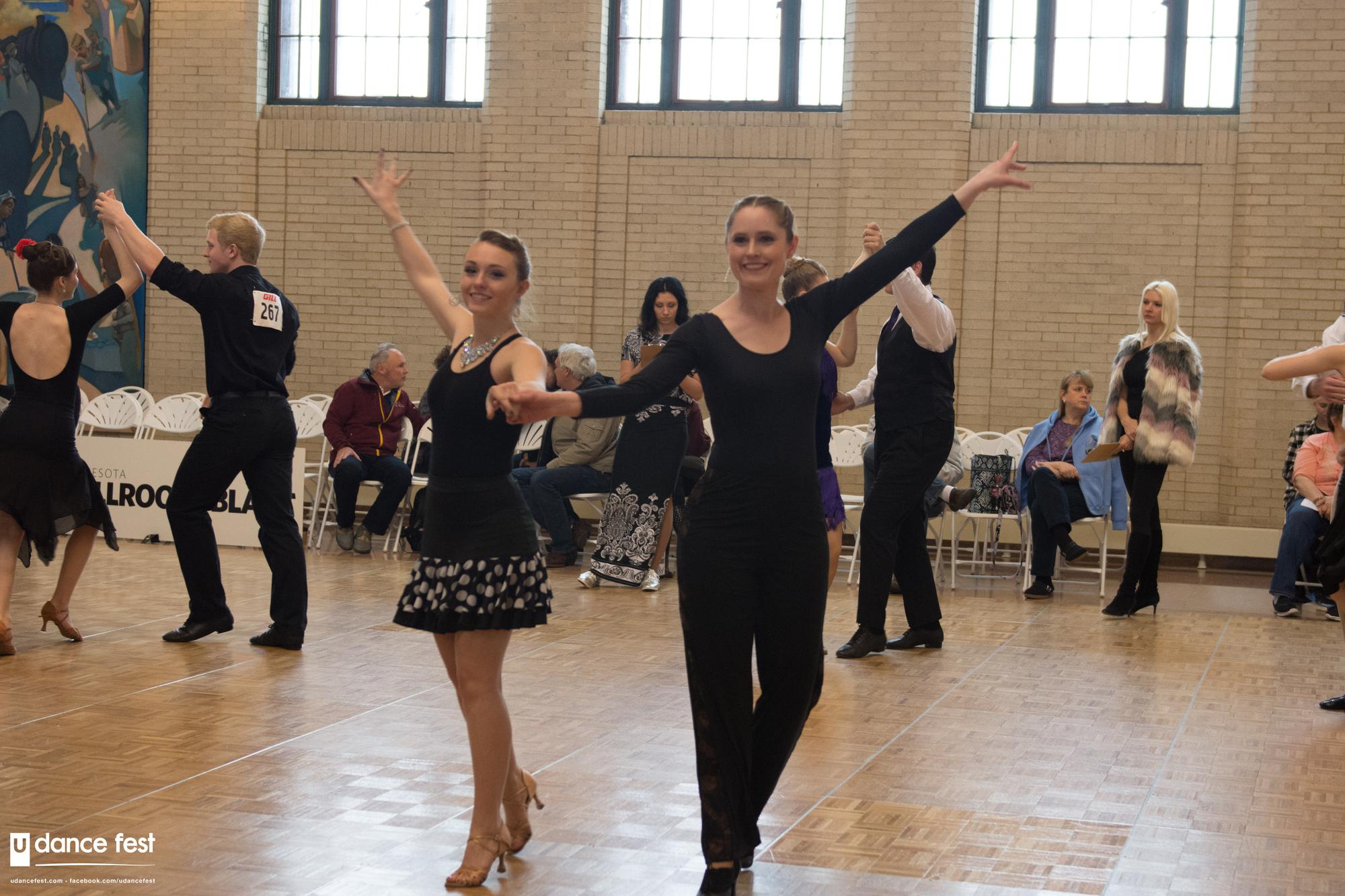Partners
Sometimes It’s Like They Can’t Even Read Your Mind at All
By Eric Niehans

On the first day of Dance Fest my partner was feeling very low. She’d had a tough week and was in need of cheering up, or at least that’s what I thought. You see, I’m the clown who simply needs to turn frowns upside down, usually with well-placed dad jokes. So while we were in line I started trying to crack my partner up, but it did not go over well. Rather than easing the tension, my silliness stressed her out and distracted her from mentally preparing for the dance floor. Neither of us were at ease, and you could see it in our dancing.
Fundamentally, this was a breakdown of the most essential part of any partnership: communication. Each partnership is unique and the needs of each dancer have to be addressed. There are partners who need to steel their nerves, and others who need distraction from them. There are those that need pumping up, and others that need calming down. And, of course, you have your needs as well; maybe you are the same as your partner and maybe you are the opposite, needing very different kinds of attention or space. It is because of these differences and needs that we must always communicate with our partners about how we can best support them, and how they can best support us in turn.
After that first day my partner and I took a moment to steal a corner and talk. It was obvious that something was off and we needed bridge our gap of communication. From there we made a Partnership Contract: a deal of how we would support each other, how we would confront problems, and even what we would do while we were in line. We were open and frank about what we needed from each other; not just as partners, but as friends.
In the end we came to a deal: she needed to focus on what was coming ahead and prepare while I needed a bit of distraction by pumping up. We decided we would not joke around in line, but rather take the opportunity to go through a flight check and see what we knew and what we needed to focus on during the dance. This gave me the benefit of talking to someone, while she still had the chance to check everything off in her head.
Fast forward to the next day: In line, rather than trying to break the tension, we lean into it, talking about what we want in the next round, how we are going to do our best. Our dancing felt stronger, and so did our partnership. We didn’t win any ribbons that day, but we knew we were better off than before, and we would keep getting better. The reason this happened was because we communicated, and we were able to work together as a cohesive unit. This verbal contract you make with your partner is something that you will have to work on constantly, and change it to fit your needs, but being open and frank about what you need is always a help in ballroom and in life.
